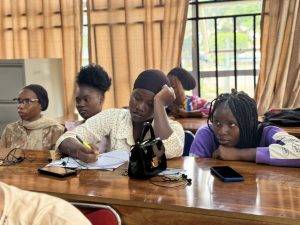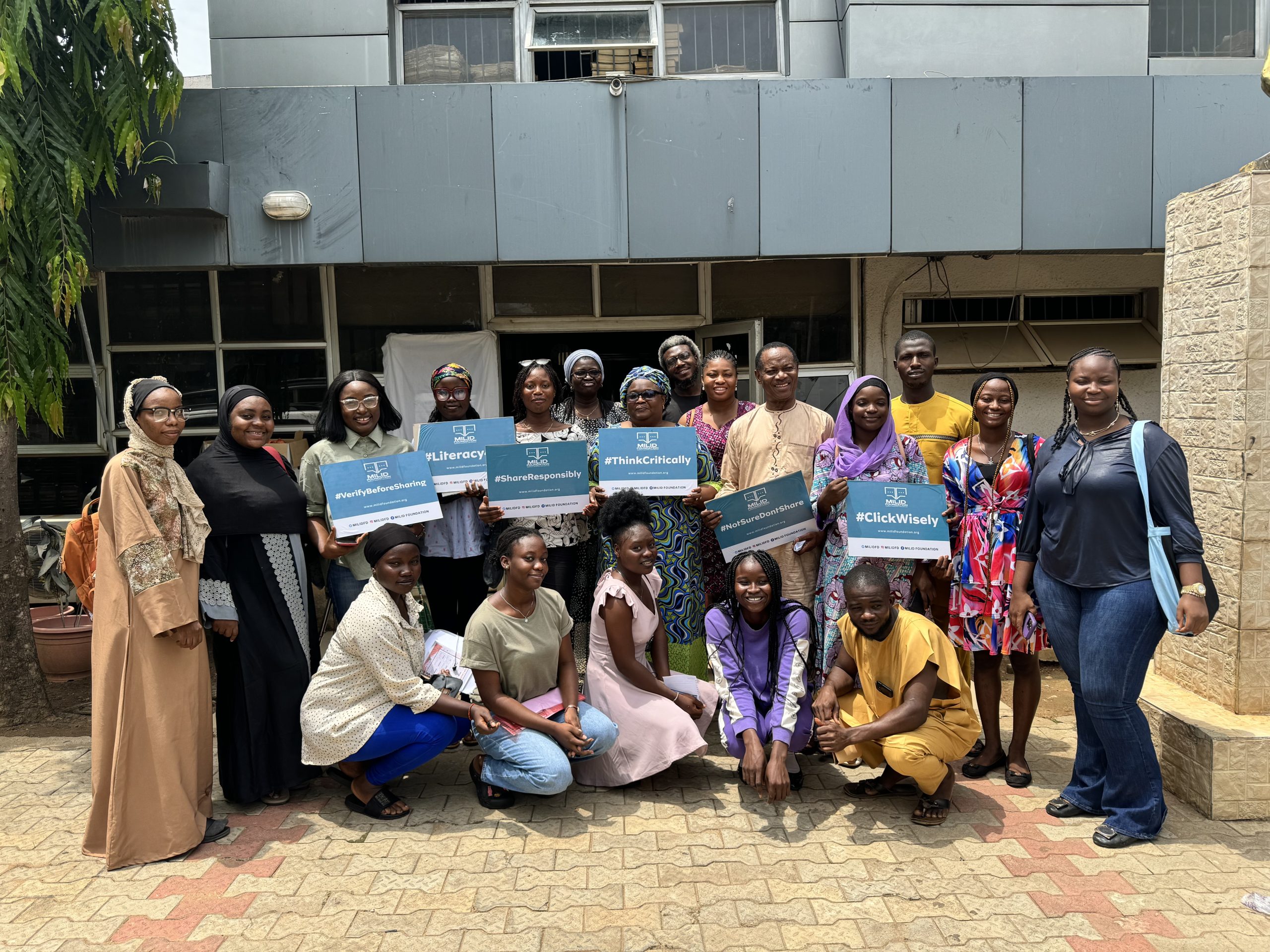By Amarachi Onwuzulike
The “MIL101: Introduction to Media and information” workshop organised by the Media and Information Literacy and Intercultural Dialogue (MILID) Foundation in collaboration with the National Library of Nigeria, FCT Chapter was held at the National Library in Garki, Abuja. This event brought together participants eager to enhance their media and information literacy skills and understand the importance of factual information in today’s digital age. The workshop featured a lineup of distinguished speakers who shared their expertise on various aspects of media and information literacy.
Mrs. Folasade Adepoju, one of the speakers, emphasised the importance of factual information. She highlighted the critical need for workers, youths, and the general populace to recognize the value of an informed society. “In a world where misinformation can spread rapidly, understanding and disseminating factual information is crucial for the stability and progress of our society”, she stated.
Dr. Geoffrey Njoku, the Board Chair of MILID, addressed the dangers of misinformation in Nigeria. He explained how misinformation can lead to division and unrest, urging Nigerians to think critically and analyse information before believing what is on social media. “Misinformation can create unnecessary fear and conflict. It is essential to verify the authenticity of information and not fall prey to misleading content,” Dr Njoku warned.
Mrs. Oye spoke about the impact of misinformation. She pointed out that the proliferation of false information affects the cultural fabric of society. Our society is increasingly polluted with misleading information, which distorts our cultural values and heritage. It is vital to ensure that information we share is truthful, sensible, and important,” she advised.
Chiamaka Okafor, the Executive Director of MILID Foundation, provided a comprehensive definition of media and information literacy according to UNESCO. She elaborated on how information passes from one place to another and introduced six critical considerations that must happen before sharing information. They are verify before sharing, think critically, click wisely, literacy for all, not sure don’t share, and share responsibility.

She discussed the 5Ws and H method used to analyze and verify information: What, Why, Where, Who, When, and How. She explained the three modes of passing wrong information through misinformation, disinformation, and malinformation and their implications. “Disinformation users often exploit emotions, deep fakes, click baits, and desperation to deceive the public,” she noted.
The workshop underscored the necessity of media and information literacy in fostering an informed and cohesive society. Participants left with a deeper understanding of the importance of critical thinking and responsible information sharing, equipped with practical tools to navigate the complex media and information landscape.



